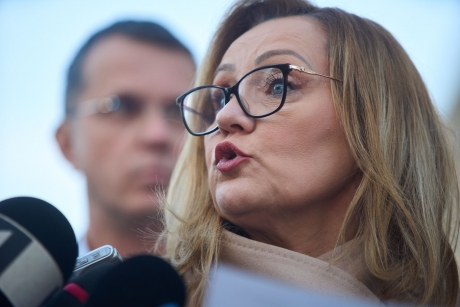In a move that has sparked controversy and raised concerns about potential foul play, Elena Lasconi, the Chair of the Save Romania Union (USR), has brought attention to the shortened voting time for citizens living abroad in the upcoming presidential election on May 4. The regulations stipulate that polling stations abroad will close at 9:00 p.m. on Sunday, a decision that Lasconi has criticized as a potential disadvantage to Romanian expatriates exercising their right to vote.
Lasconi’s remarks have ignited a debate over the fairness and transparency of the electoral process, particularly regarding the voting rights of Romanians living outside the country. The issue of voting access for expatriates has long been a contentious one, with concerns raised about the logistical challenges and obstacles faced by citizens living abroad in participating in elections.
The decision to close polling stations earlier than usual has been met with skepticism and suspicion by USR and other opposition parties, who argue that it could disenfranchise Romanian expatriates and undermine the democratic process. Lasconi has called for a reevaluation of the voting procedures to ensure that all citizens, regardless of their location, have equal and adequate opportunities to cast their votes.
The timing of the closure of polling stations abroad has also raised questions about the motivations behind the decision and whether it could be a deliberate attempt to limit the participation of expatriate voters. With a significant number of Romanians living outside the country, their votes could potentially have a significant impact on the outcome of the election, making the issue of voting rights for expatriates a crucial one in the political landscape.
Lasconi’s criticism of the shortened voting time underscores the broader concern about the integrity and inclusiveness of the electoral process in Romania. As the country prepares for the upcoming presidential election, ensuring that all citizens have access to the ballot box and can exercise their right to vote freely and fairly is paramount to upholding the principles of democracy.
The controversy surrounding the voting time for expatriates highlights the need for greater transparency and accountability in the electoral process, as well as a commitment to safeguarding the rights of all citizens to participate in the democratic process. Lasconi’s call for a reevaluation of the voting procedures underscores the importance of addressing these concerns and ensuring that the upcoming election is conducted in a manner that upholds the values of democracy and ensures that every voice is heard.


